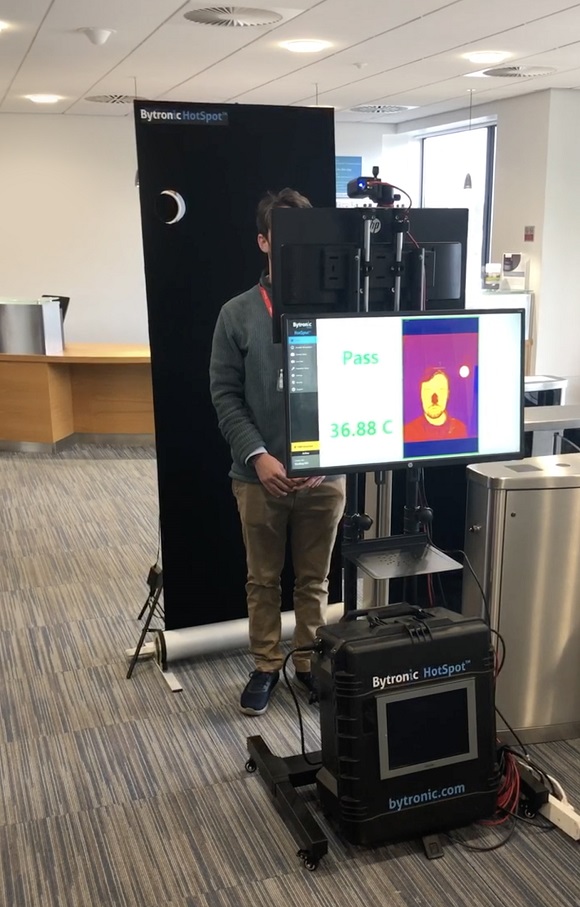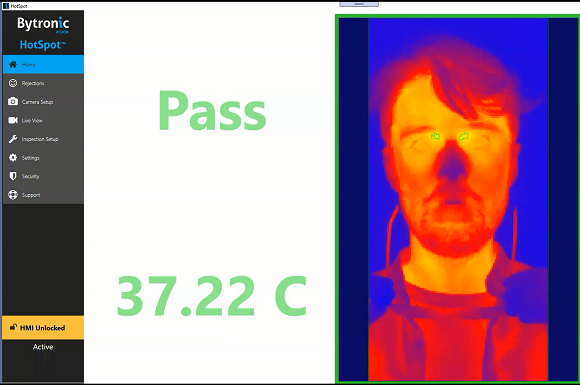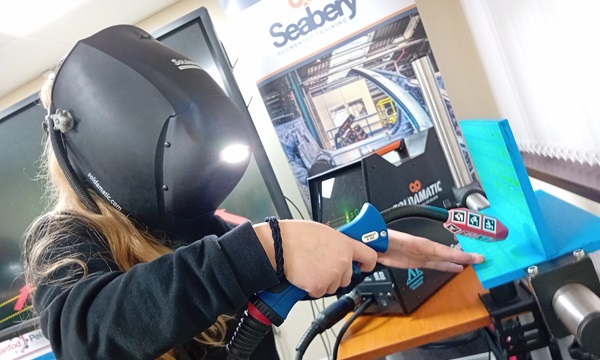Article by Dr John Dunlop – co-founder of Bytronic Automation
Over the past few weeks I’ve been at a loss to understand why the issues of quality standards and security have not been more prominently discussed in relation to body temperature scanners.
 As more places consider installing thermal imaging technology, the market has been flooded with new ‘off-the-shelf’ kits. There’s certainly a rush to get this technology installed to get the economy moving, but I worry that the usual important safeguards are being overlooked.
As more places consider installing thermal imaging technology, the market has been flooded with new ‘off-the-shelf’ kits. There’s certainly a rush to get this technology installed to get the economy moving, but I worry that the usual important safeguards are being overlooked.
To start with, the price point of some of these systems is far below what I know is even remotely possible in order to meet the international standards for accuracy that already exist for this technology.
On closer inspection, many devices simply don’t stand up to scrutiny when put to the test in real-life situations (see any clip of crowds having their temperatures checked). I’ve already mentioned the possible variations in temperature and the potentially serious problems that can lead to.
And then there’s the impact of failed tests on the people being asked to take them – that’s all of us.
If you find yourself barred from entry to a building because you failed a body temperature check, how do you prove that the test has been carried out to a certain standard? What rights do you have, if that place is your workplace, or if you’ve paid in advance to get in? What recourse do you have?
To my knowledge, this has not been considered.
And what, then, about our data security?
As we all get used to passing through temperature checks on our commutes or on the way into buildings or venues, we should be able to feel confident that our image – arguably the most important part of our identity – is not being saved and stored unnecessarily or insecurely, leaving us open to all sorts of future privacy and data security issues.
Is the image of your face being saved every time you pass through a barrier? Even if there’s no issue with your temperature? It shouldn’t be.
If your temperature does trigger an alert, what happens then? Is your data saved and stored indefinitely, potentially leaving you vulnerable to threats or hacks if it ever got into the wrong hands?
For how long is it stored? And where? And by who? These are questions we should all be asking right now, and rightly so, with security concerns already being raised for certain kits on the market.
Yes businesses have a duty to keep their employees and the public safe. But that duty shouldn’t stop with their physical safety – it must include their cyber security as well.

There are no shortcuts or easy answers here. Quality standards and security issues are something that we at Bytronic have invested huge amounts in.
To meet all agreed international standards for accuracy, our new elevated body temperature (EBT) detection system scans the area around the tear duct, where the most accurate indication of internal body temperature can be found.
It compares human body temperature to a fixed ‘black body’ temperature emitter within the same camera shot that is constantly re-calibrated, giving an accuracy level of between 0.3 and 0.5 degrees centigrade.
This simply can’t be done with cheap ‘off-the-shelf’ alternatives.
On security, we have gone to great lengths to ensure our software is fully compliant with existing ISO and FDA regulations. It only stores data when an elevated temperature triggers an alert and that is automatically sent to a secure database held by that business or organisation. There, all of the usual data protection rules apply.
We need to be talking about this more, to make sure that our efforts to protect public health don’t lead to serious employment issues, consumer rights or cyber security issues later on.
Read the original letter here: https://www.linkedin.com/posts/johndunlop1_bytronic-standards-security-open-letter-activity-6666974870934478848-Yhn3/







